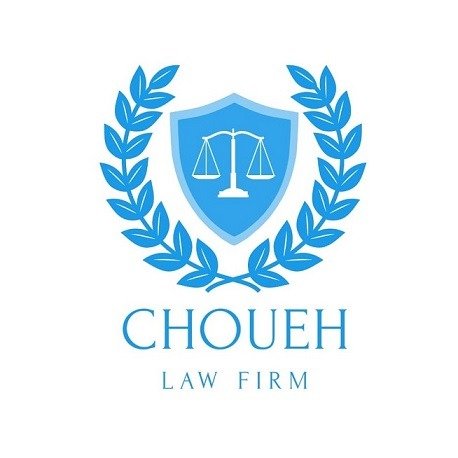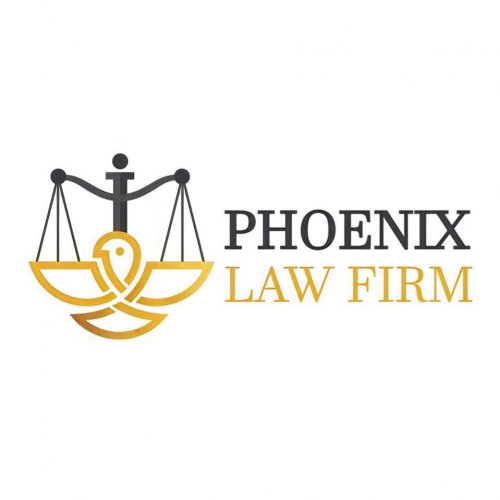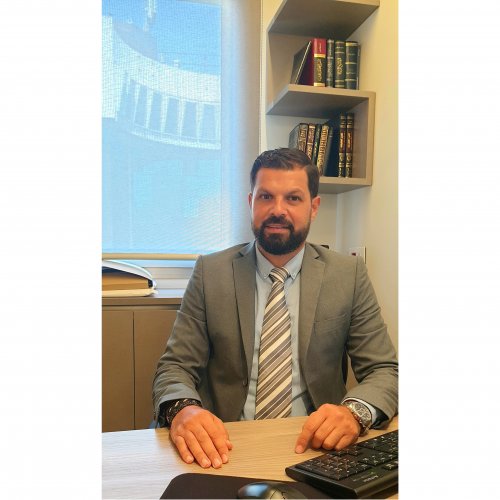Best Public-Private Partnerships (PPP) Lawyers in Beirut
Share your needs with us, get contacted by law firms.
Free. Takes 2 min.
List of the best lawyers in Beirut, Lebanon
About Public-Private Partnerships (PPP) Law in Beirut, Lebanon
Public-Private Partnerships (PPP) in Beirut, Lebanon, refer to collaborative agreements between government entities and private sector companies to finance, build, and operate projects that deliver public services or infrastructure. The approach has gained traction in Lebanon as authorities seek innovative solutions to address infrastructure gaps in sectors such as transportation, energy, water, health, and education. PPP allows for risk-sharing, improved efficiency, and often brings in the necessary investment and expertise from the private sector. The basic regulatory framework governing PPPs in Lebanon is established by Law No. 48, enacted in 2017, which outlines the fundamental concepts, procedures, and responsibilities of all parties involved in these projects.
Why You May Need a Lawyer
Engaging a lawyer experienced in PPP matters is often essential for several reasons. PPP projects are complex and involve multiple stakeholders, detailed negotiations, and intricate legal documents. You may need a lawyer in situations such as:
- Reviewing and drafting PPP contracts and agreements
- Participating in or preparing tenders and bids for PPP projects
- Navigating governmental procedures and compliance requirements
- Addressing disputes between public and private parties
- Assessing legal risks and obligations in project structuring and financing
- Ensuring adherence to local laws and regulations
- Protecting intellectual property and proprietary technology
- Handling renegotiations or contract modifications due to unforeseen circumstances
Having legal advice early in the process can prevent costly mistakes, protect your interests, and help ensure a successful partnership.
Local Laws Overview
In Lebanon, the primary legal reference for Public-Private Partnerships is the PPP Law No. 48 of 2017. The law created a specific legal structure for PPPs, clearly describing how such projects should be initiated, reviewed, awarded, managed, and monitored. Some of the key elements of local PPP regulation include:
- Project Selection: PPP projects must be included in the government’s list of priority projects and follow a selection process led by a special PPP unit.
- PPP Unit: The Higher Council for Privatization and PPP (HCP-PPP) acts as the central body managing and overseeing PPPs.
- Tendering Process: Competitive and transparent procurement procedures must be followed, with standardized evaluation criteria and public announcements.
- Contractual Framework: PPP agreements must specify duration, performance indicators, allocation of risks, methods of dispute resolution, and rights and obligations of the parties.
- Risk Sharing: The law encourages fair allocation of risks and promotes mutual benefits.
- Government Guarantees: The government may provide certain guarantees or incentives, but there are limits to ensure public funds are protected.
- Dispute Resolution: Typically, disputes are resolved by arbitration as outlined in the contracts or by recourse to Lebanese courts.
In Beirut and elsewhere in Lebanon, other laws such as contract law, administrative law, and sector-specific regulations may also influence PPP projects.
Frequently Asked Questions
What is a Public-Private Partnership (PPP) in Lebanon?
A PPP in Lebanon is a formal collaboration between a government entity and a private company to finance, construct, or manage public infrastructure or services under a long-term contract.
Which authority manages PPP projects in Beirut?
The Higher Council for Privatization and PPP (HCP-PPP) is the key government agency responsible for supervising and implementing PPP initiatives in Lebanon, including Beirut.
What types of projects are suitable for PPP in Lebanon?
Typical sectors include transportation (roads, ports, airports), energy, water supply, waste management, healthcare facilities, and public buildings such as schools and hospitals.
How are PPP contracts awarded?
PPP contracts are generally awarded through a public tender process that ensures transparency and fair competition among bidders.
Can foreign companies participate in PPP projects in Beirut?
Yes, foreign companies can participate either independently or in consortiums, provided they meet the requirements set forth in the tender documents and adhere to local legal provisions.
What are the main risks associated with PPP projects?
Main risks include construction delays, changes in law or regulation, financing challenges, performance shortfalls, and potential disputes between the parties.
How are disputes in PPP deals resolved?
Most PPP agreements provide for dispute resolution through arbitration, although parties may also seek remedies via Lebanese courts depending on the contract terms.
Are there any incentives for the private sector in Lebanese PPPs?
Yes, the government may offer incentives such as land, infrastructure, tax exemptions, or guarantees, but these are evaluated on a case-by-case basis and within legal restrictions.
What is the typical duration of a PPP contract in Lebanon?
PPP contracts usually range from 10 to 30 years, depending on the project's nature and financial requirements.
Do I need legal representation to bid for a PPP project?
While it is not legally required, it is highly advisable to have legal counsel to help with due diligence, compliance, contract review, and negotiations.
Additional Resources
Several organizations and entities provide useful information and support for PPP projects in Beirut, Lebanon:
- Higher Council for Privatization and PPP (HCP-PPP)
- Ministry of Finance and sector-relevant ministries (e.g., Ministry of Energy and Water, Ministry of Public Works)
- Order of Engineers and Architects in Beirut
- Business and industry associations such as the Association of Lebanese Industrialists
- Reputable law firms with specialized PPP practice groups
- World Bank and international organizations with active PPP initiatives in Lebanon
Next Steps
If you are considering involvement in a PPP project or need legal advice related to PPPs in Beirut, it is important to:
- Identify your specific needs and objectives for participating in a PPP
- Contact a legal professional with experience in Lebanese PPP laws and international best practices
- Prepare relevant documents such as company profiles, financial records, and previous project experience if you intend to bid
- Stay updated on public announcements from the HCP-PPP and governmental ministries regarding new opportunities
- Arrange a consultation with a lawyer to discuss your questions, project feasibility, and compliance requirements
Taking these steps can help you navigate the complexities of PPP projects, protect your interests, and increase your chances of a successful collaboration with the public sector in Beirut.
Lawzana helps you find the best lawyers and law firms in Beirut through a curated and pre-screened list of qualified legal professionals. Our platform offers rankings and detailed profiles of attorneys and law firms, allowing you to compare based on practice areas, including Public-Private Partnerships (PPP), experience, and client feedback.
Each profile includes a description of the firm's areas of practice, client reviews, team members and partners, year of establishment, spoken languages, office locations, contact information, social media presence, and any published articles or resources. Most firms on our platform speak English and are experienced in both local and international legal matters.
Get a quote from top-rated law firms in Beirut, Lebanon — quickly, securely, and without unnecessary hassle.
Disclaimer:
The information provided on this page is for general informational purposes only and does not constitute legal advice. While we strive to ensure the accuracy and relevance of the content, legal information may change over time, and interpretations of the law can vary. You should always consult with a qualified legal professional for advice specific to your situation.
We disclaim all liability for actions taken or not taken based on the content of this page. If you believe any information is incorrect or outdated, please contact us, and we will review and update it where appropriate.










